School of Computing and Design
Computer Science Capstone Festival Spring 2022
Friday, May 20, 2022
10:00am - 12:00pm
Agenda:
10:00am - Welcome and Opening Ceremony, BIT104 and 110
10:15am - Recorded presentations played in rooms BIT104, 110, 113 and 119
11:00am - Poster Session, BIT First Floor Atrium
11:45am - Festival Ends
----------------------------------------------------------------------------
dKomplex Twitter Analytics Enhancement
Noah Ahmed | Erfanullah Arsala | Niel McMahan | Roy James Morla

We worked with dKomplex inc in order to improve their data analysis capabilities. This was done by filtering twitter and RSS data through Microsofts Azure text analytics API to provide useful data. This filtered data is then used to create useful visualizations that can be presented to dKomplexes clients

Solar: A Hyper-personal, P2P Social Network
Jasdeep Dhillon | David Gaeta | Jamielle Maniulit | Garrett Slone

Solar aims to create a sentiment mode of communication between users. The application allows users to join numerous channels (solar systems) and send sentiments to a selected user. It acts similar to a social media page where friends communicate with one another. However, the major difference is that this application utilizes its own hardware device called a raspberry pi. All data is stored in a central server.

OED Resource Generalization
Andrew Cline | Hardik Kharpude | Justin Le | Turipamue Mbetjiha | Sagar Prasad

Open Energy Dashboard is a large open source project that is designed to replace expensive utility management software. Previously OED could only graph in one unit (kWh) and needed to be adapted to handle any user defined unit. Our team, along with some others, were tasked with getting OED to be able to graph any unit created by the user.
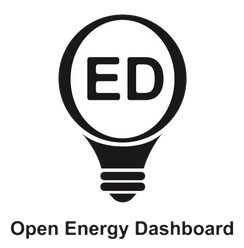
C++ Game Engine
Tanisha Mahajan | Ivan Mendoza Ojeda | Daniel Reyes | Daisy Rocha-Montanez | Swarangi Salvi

The goal of this project is to build a game engine that is written entirely in the C and C++ programming languages. This game engine will be one that belongs to CSUMB and is built entirely by CSUMB students. Students in the future could use it to develop games, learn more about the architecture of a game engine, and practice their C++ skills.
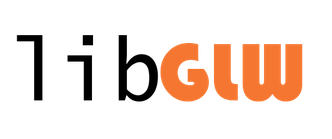
Justice Partner Portal
Gabriel Cano-Sandoval | Scott Coonis | Adrian Ortiz | Juan Ramirez Jr | Sahil Sinha

Serving the public of Monterey County every day, the Justice Partner Access Website (JPAW) makes accessing court data easy and fast. A project directed by the Superior Court of California in Monterey Bay, this website publishes court records on a wide variety of subjects such as Case hearings, Jury Summons, Traffic Tickets, and more. Our team’s objective for this project was to create an updated version of JPAW, titled JPAW 3.0. This updated version is a Progressive Web Application that brings forward some changes to the User Experience. These changes could potentially replace the Court’s existing deployment of JPAW on Android, iOS, and Web. This approach aims to deliver consistent site performance across different devices and platforms, reduce the amount of “technical debt” acquired during the previous development cycle, and greatly diminish the cost of maintaining three separate applications by consolidating the experience into one web application.
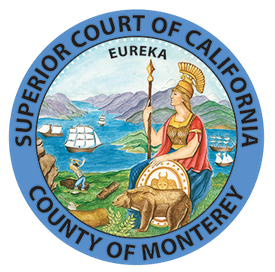
Virtual Aquarium Tank System
Hernan Hernandez | Breanna Holloman | Kyle Jackson | Hamza Saleem

VATS is an educational Unity game where the user can experience an interactive simulation of a marine ecosystem. We wanted to give the user the opportunity to learn about sea life and grant ocean exploration in a convenient way. Also, VATS provides insight on the living conditions needed for various aquatic species and allows the user to experiment with changing various elements of the ecosystem over time.
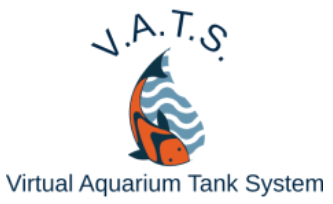
Web-based CalSPEED Network Speed Measurement Tool
Johnny Huynh | Andrew Koon | Diego Llamas | Chaitanya Parwatkar | Jose Caudillo

Web-based CalSPEED Network Speed Measurement Tool is a web application which empowers end-users with a professional-level, industry-standard testing tool to measure the quality and speed of their residential fixed internet connection. Users can test their upload speed, download speed, message delay (Latency), and message delay variation (Jitter) using this web application. It allows users to know if the quality of service they are receiving is worth the price. Originally the CalSPEED application required a download and an installation. Our team has created and optimized a web-based application from scratch that only requires a web browser to access, and also is mobile friendly. The tool now is maintenance free and provides users with portability and security.
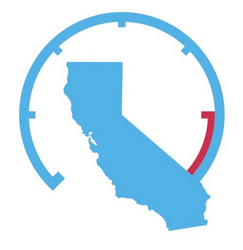
OED Testing
Angel Gutierrez | Bryan Hernandez | Guruprem Rajpal | Ryan Trinh

The Open Energy Dashboard (OED) is a free, open source project that provides a web-based application to display energy information in a web browser. It was designed from the ground up to be portable so that it can be used at many organizations. We completed the JSDoc checkstep and created a skeleton for automating the CI/CD process. These issues are critical for the OED as a whole since they allow developers to save time.

Get Up and Move (GUM)
Michael Gabriel | Francisco Hernandez | Timothy Johnson | Jennifer Lopez

Get Up and Move (GUM) is a mobile application that promotes activity and wellness to people who find it difficult to get enough regular exercise throughout the day. The app is now available on Android and iOS and shows health activity routines to help you in your journey. The apps allow you to create and join groups to promote wellness to your friends, family, and coworkers.
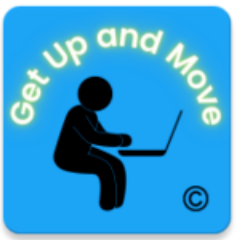
Solar: A Hyper-personal, P2P Social Network
Douglas Dolton | Roshan Menik Arachchige | Syn Kae Ng | Shyam Patel | Weixuan Jia

Solar aims to create a sentiment mode of communication between users. The application allows users to join numerous channels (solar systems) and send sentiments to a selected user. It acts similar to a social media page where friends communicate with one another. However, the major difference is that this application utilizes its own hardware device called a raspberry pi. All data is stored in a central server.

Token Tabs
Daniel Bellonzi | Aundre Labrador | Nicolas Lara Fonseca | Daniel Wadell

We built a browser extension that monetizes the common activity of opening a new tab, returning that to users through cryptocurrency and prize giveaways. New tabs created also offer users a homepage that includes crypto news and prices along with widgets like notes and search.
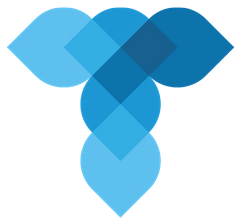
Virtual Aquarium Tank System
Niko Holbrook | Prince Rios | Steven Schreiber | CJ Turetzky

We created a file called a Fish Evaluation Vector (F.E.V.) that allows new types of fish to be easily added to the simulation. These files describe the fish's behavior, valid environments such as depth and temperature, and models to render the fish. We also created a front end web page to make creating these F.E.V.s easy and intuitive.

Proof Checker V2
Jason Baker | Michael Kammerer | Barbara Kondo | Emma Larson

Proof Checker is an online resource for CST 329: Reasoning with Logic, that enables students to instantly check whether their process and understanding of proof rules is correct. Proof Checker V2 added admin functionalities that allow instructors to separate students into sections. Those sections will now view proof assignments as specified by their instructors. Classes will not have to worry about completing proofs that were assigned to a different class. This will also ensure that test and quiz assignments can be opened for each class individually, rather than making the proofs public to the entire CSUMB domain.

Contact Tracing Application
Jonathan Ordiano | Daniel Rangel Figueroa | Gaurav Singh | Samantha Stolte

The Contract Tracing Application is a prototype application for automated contract tracing, meant to provide proof of concept for an app working on a larger scale. The app is capable of identifying when two app users have been in contact through their smartphones. When a user reports that they have tested positive for COVID-19, their logged contacts can be automatically notified about their exposure.

Virtual Medical
Rodrigo Andrade Villafana | Eric Chavez Velez | Kathryn Grose | Derek Lilienthal

Healthcare workers, specifically EMTs, spend a lot of time filling out paperwork documenting the vitals and procedures a patient has received. The time spent on this mandatory paperwork causes hospitals to have more ambulances and EMTs on hand which is a costly expense. Virtual Medical is an exploration into using machine learning to speed up the documentation process to save time and money.

Class Scheduler
Alex Espinoza-Fuentes | Ruben Esqueda | Ashley Garcia-Arellano | Boris Marin

Class Scheduler is a web service that takes a list of resources/constraints (classes, classrooms, instructors, restrictions, and references) and recommends a class scheduler that meets all of the strict requirements while maximizing the referred requirements.
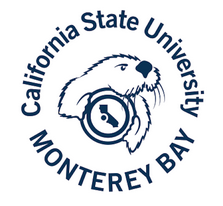
OED Resource Generalization
Samuel Busane | Julio Lopez | Jeremy Meharg | Oscar Ruiz

Open Energy Dashboard (OED) is a large open source project that is designed to replace expensive utility management software. Previously, OED did not allow users to create or edit unit conversions that had already been created. Our team’s main focus was to implement the conversion page to grant users the ability to create and edit new and existing conversions, with the overarching goal of working alongside other OED teams to prepare OED for a public launch of the website.

The Individual Effectiveness Evaluator
Nicholas Anderson | Jim Cabrera | Nayeli De Jesus | Makayla Rodriguez

The Individual Effectiveness Evaluator is a website app that takes in text, and a Twitter account name if they chose to provide one and analyzes the person who wrote the text and the tweets that person shared. The Individual Effectiveness Evaluator then determines the grade that person may receive based on the Big Five traits: Extraversion, Neuroticism, Openness, Agreeableness, and Conscientiousness.
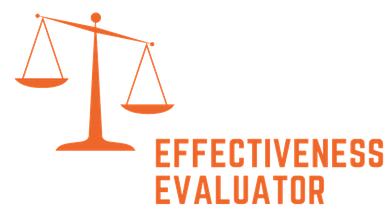
SportsWzrd Website
James Campbell | Alexis Sanchez Martinez | Ritik Sirsikar | Michael Velasquez

SportsWzrd is an online website which empowers NBA fans and fantasy basketball players with helpful tools for research and analysis. The existing features are limited and not intuitive for new users. These problems were fixed by adding two new features. We have created a weekly schedule view feature and a player search feature. This will make it easier to determine when to trade players and be able to quickly search for statistics and information on a specific player.
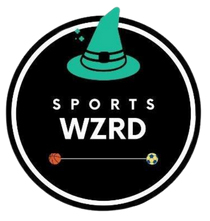
Business Calculator
Brendon Magana | Timothy Rodgers | Karandeep Singh | Arthur Timpe | Daniel Kufer

A Business Calculator that determines whether a promotion (temporary discount) will increase or decrease profits. This kind of information is good to know ahead of time. It uses a browser-based user interface and a machine learning program fed with past data.
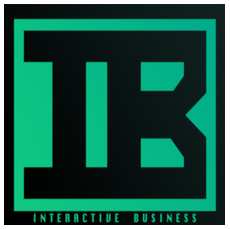
OED UI Enhancements
Onyinyechukwu Aladiume | Edward Cluster | Andrew Mei | Joseph Newman

Open Energy Dashboard is a large open-source project that is designed to replace expensive utility management software. Previously OED's UI was more on the basic design. The UI team's job was to standardize and upgrade the user experience. Making the web page more responsive and friendly to the user was the main task at hand.

Draculog
Draculog: a new and innovative open-source tool that can be used to help simplify a complex computer science topic. By using Draculog, you can run your code, and then get a measurement of how much energy was consumed to run your code. This helps make the topic of Big O more relatable to the real world, and thus easier to understand.

Computer Science Student Interest Research
In this project, we are exploring ways to model Computer Science Students in non-stereotypical ways to gain a better understanding of students.

Analogies In Computer Science
Clyde Ivan Rei Tingas Sumagang | Jamiel Capatayan
Analogies in Computer Science is a research study that works to identify how much students identify and engage with analogies used in Computer Science classrooms. Those analogies will then be analyzed to determine which can be understood by a more diverse populace.
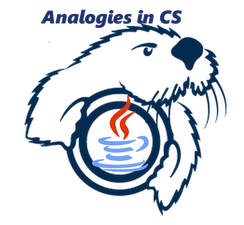
Free Code Camp - Classroom Mode
Guillermo Flores V | Erik Gallardo | Robert Huskins | Edgar Peralta

freeCodeCamp classroom mode is a self-hosted solution to help teachers plan and manage classroom-based learning, on top of freeCodeCamp's learning platform. Teachers can create "classrooms" that track the progress of large groups of students who are going through freeCodeCamp's curriculum. This is important because currently, freeCodeCamp's curriculum is self-driven.



